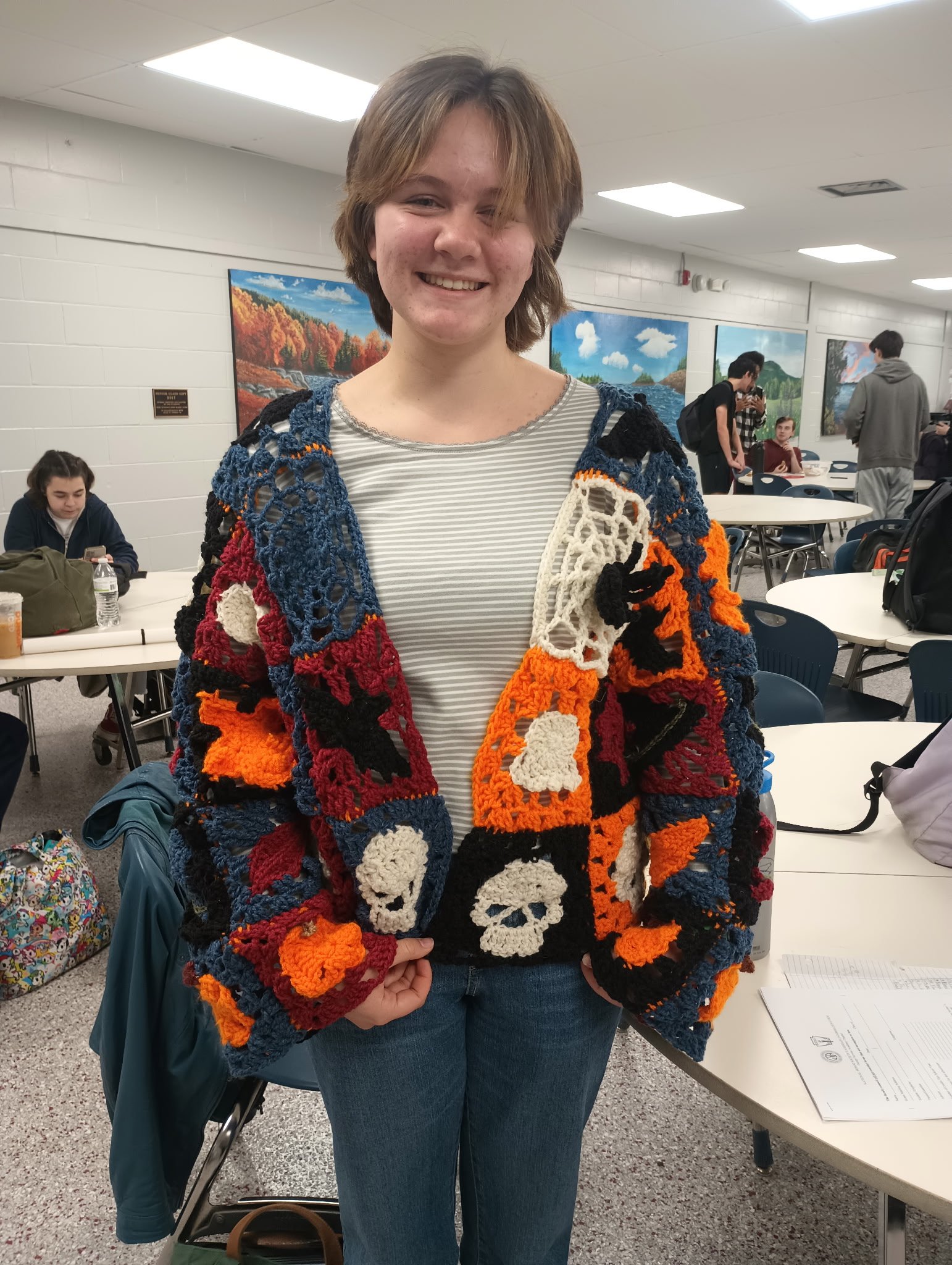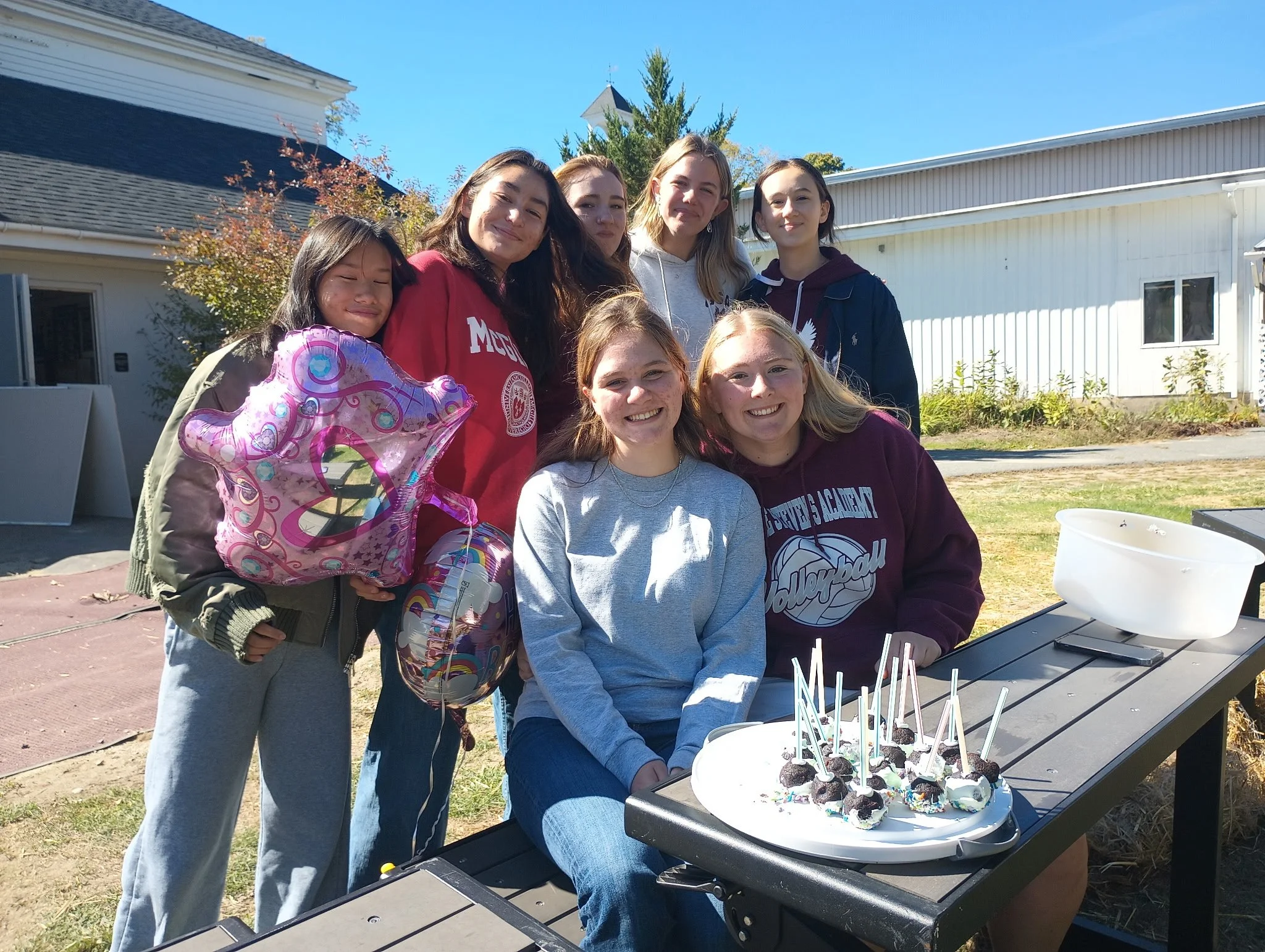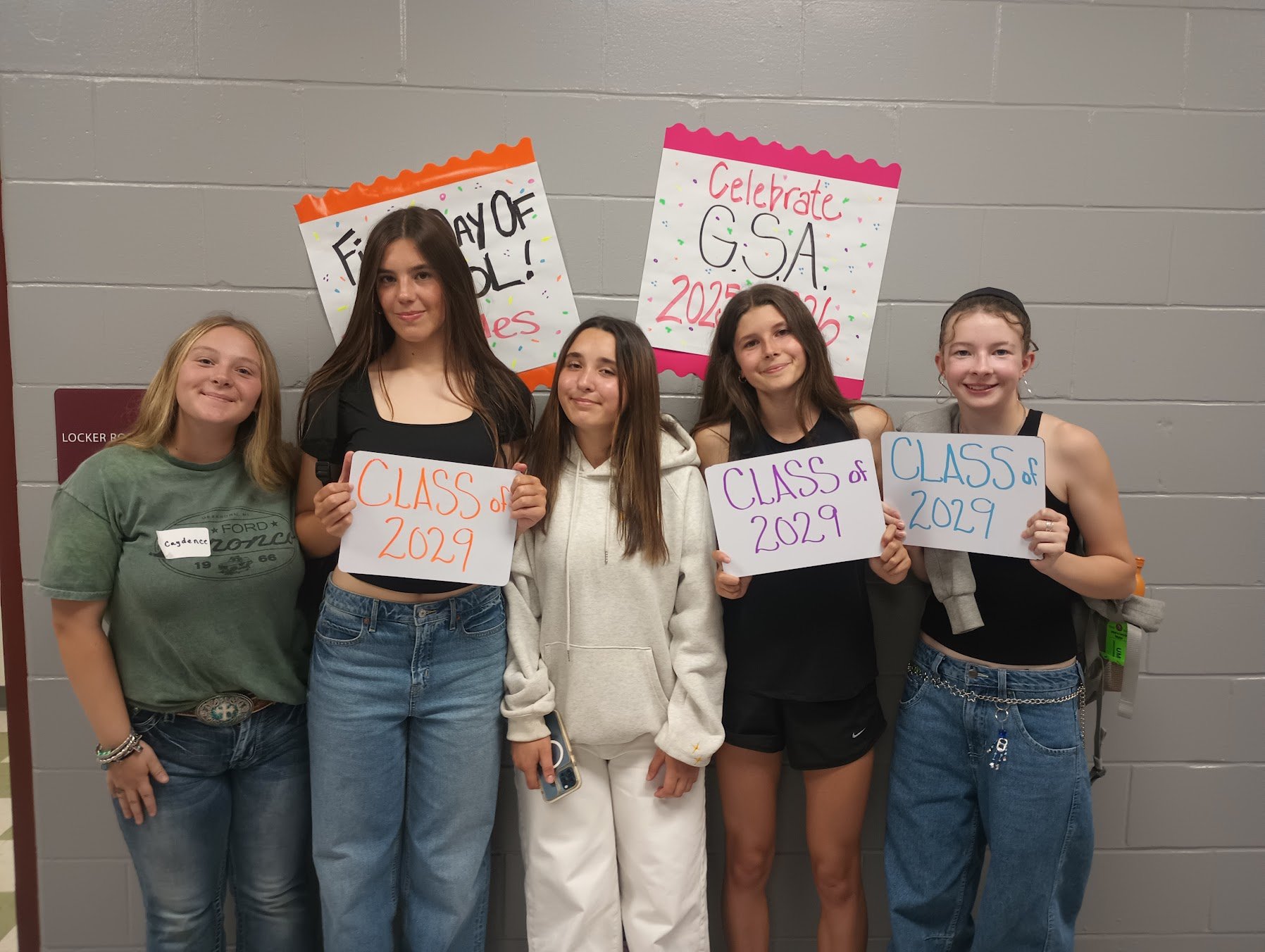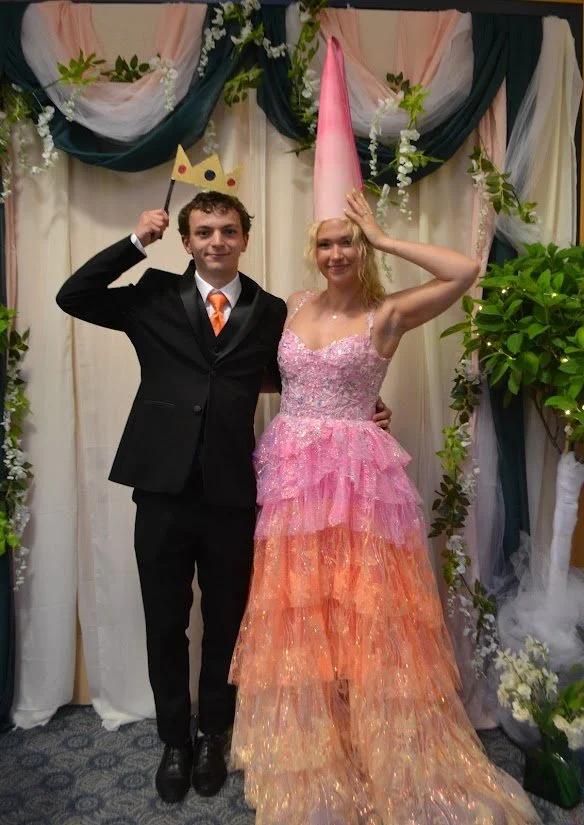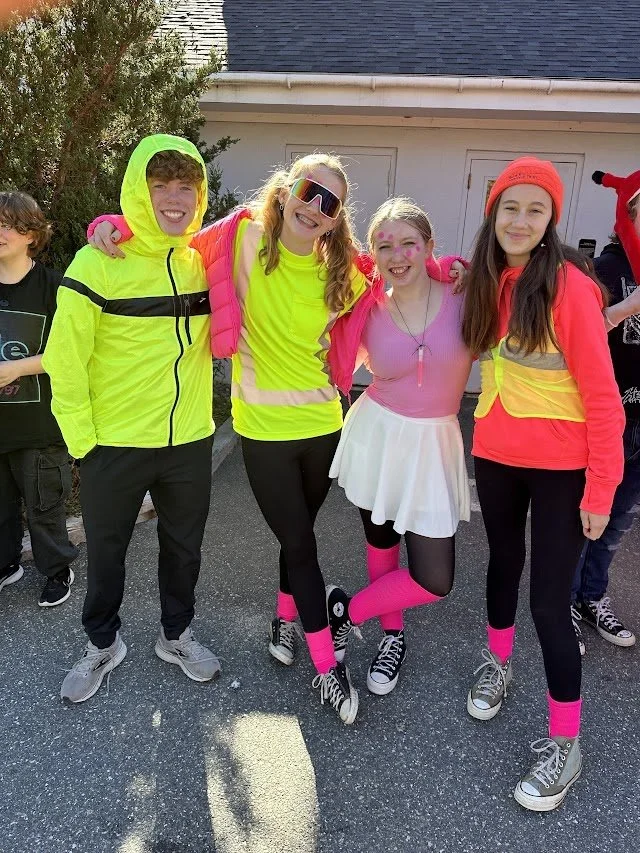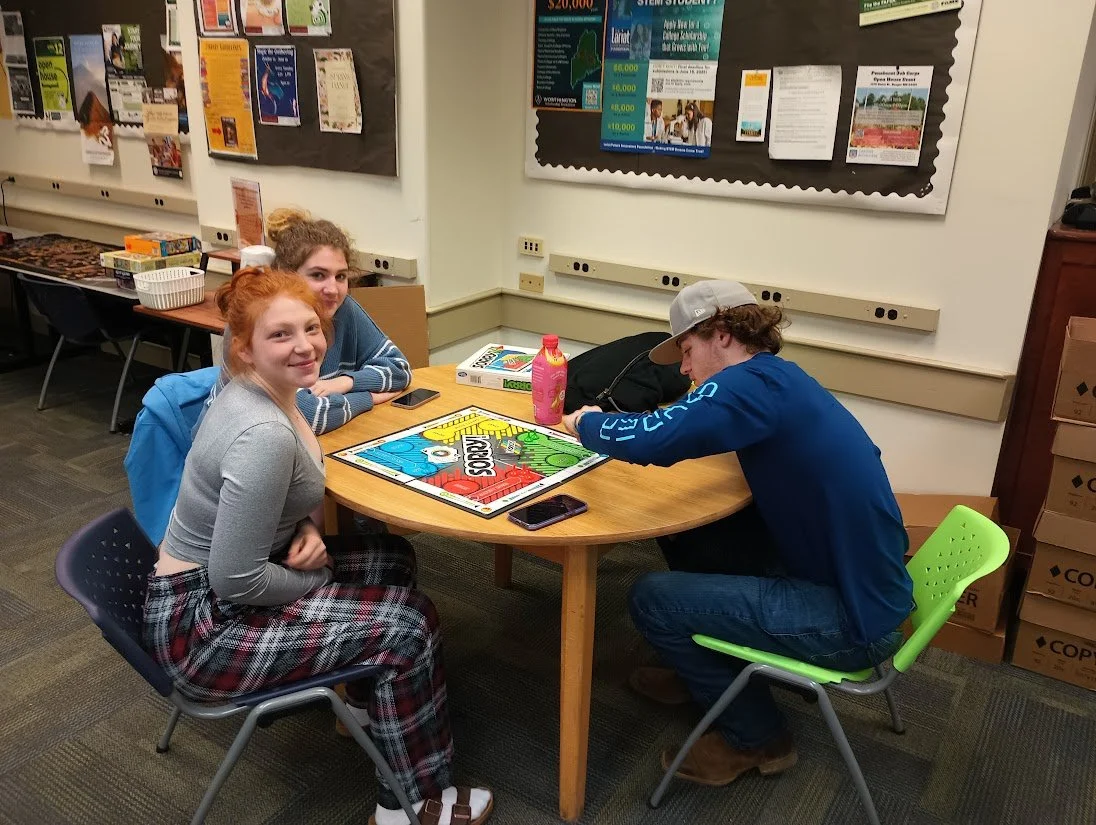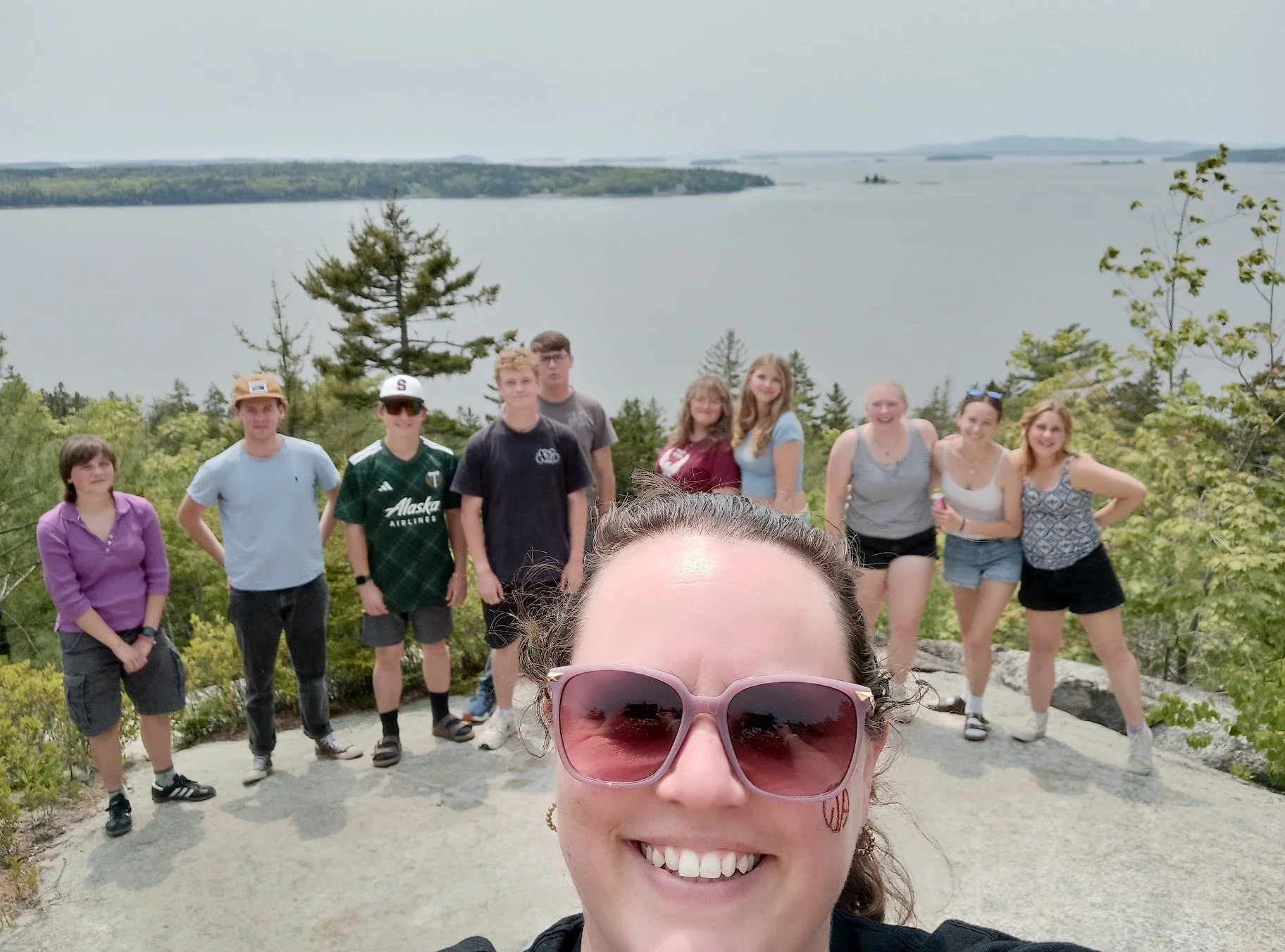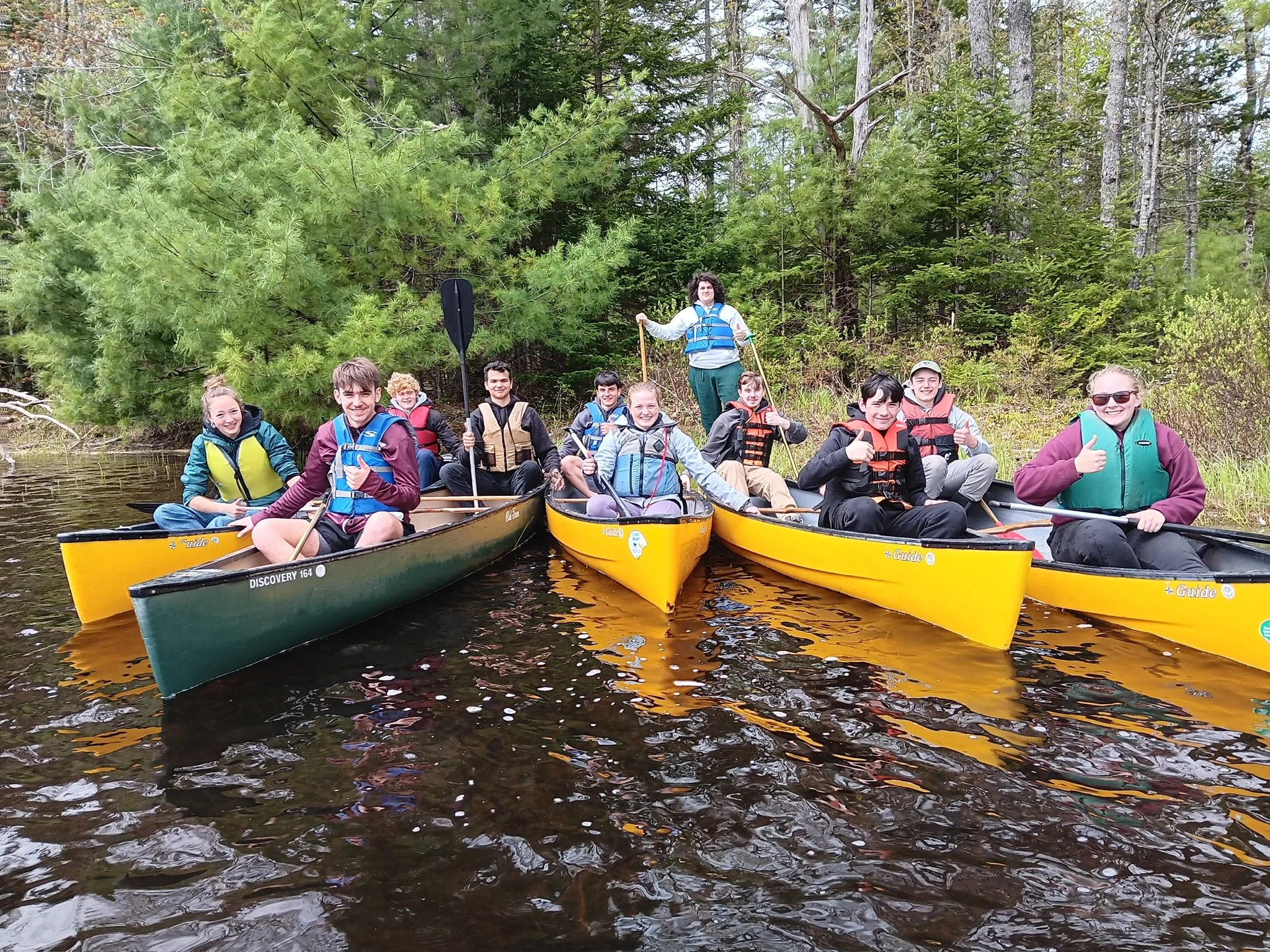STUDENT LIFE AT GSA
For rural teens, extracurricular activities aren't just after-school pastimes—they're lifelines to engagement and success. Research shows that participation in extracurricular activities increases students' sense of engagement and attachment to their school, thereby decreasing the likelihood of school failure and dropping out. In communities where educational resources may be limited, these activities become critical pathways to achievement.

NEW! GSA Houses!
Each advisory is sorted into either House Maroon or House White. This is a friendly competition where Houses earn points for participation in school spirit activities and being good school citizens. Faculty, Staff, and Students can all nominate someone for a House Point. At the end of each semester, the winning house will get a fun prize!
Our Clubs & Activities
-
GSA Thespians (Erin McCormick)
Math Team (Isaac Vacarro)
National Honors Society (returning this winter!) (Kat Mendez)
Robotics Club (Steve Whitney)
Eco Club (Sara Bushmann)
Debate Team (David Stearns)
E-Sports (Chrissy Allen)
Activity Period (Over 20 Selections to choose from hosted by GSA Faculty and Staff. Meet every Wednesday from 2-2:30 all year-long!)
-
Student Council (Chrissy Allen)
GSA Ambassadors (Bob Slayton)
GSA Solutionaries (Chrissy Allen)
Sources of Strength (Seanna Macomber)
-
Spirit Weeks (Student Council)
Dances/Prom (Student Council and 11th Grade Prom Committee)
ArtsFest (Melissa Rioux)
Spirit Weeks (Student Council)
Dances/Prom (Student Council and 11th Grade Prom Committee)
ArtsFest (Melissa Rioux)
Holiday Celebrations (Thanksgiving Meal and Holiday Break Party)
Senior Annual Blue Hill Mountain Hike
Assemblies with games
Special Field Trips
Back to School events (orientations, Back to School Night)
Any student can start a club at anytime. If you don’t see something, and you’re interested in starting a club,
contact Chrissy Allen, Dean of Students, at c.allen@georgestevens.org.
Community Service
George Stevens Academy values community involvement not only within our campus, but in our larger community. We believe that our school is part of our local community and our students and staff can and should work with local government and organizations to help make the Blue Hill Peninsula stronger and more connected. To honor this commitment, GSA requires students to complete 40 hours of community service during their tenure as students. This provides our students with opportunities to connect with and give back to their community, and for our local community to know our students and be part of their growth as young adults.
Student Support
-
Ninth-Grade Seminar is designed to help students successfully transition to the high school learning environment. The Ninth-Grade Seminar teacher provides students with the support and resources needed to handle the academic rigors of GSA and beyond. Daily classes combine short, focused, academic lessons with guided independent study time, tutoring, and daily monitoring of grades in all of their courses. Throughout the year, students learn the skills needed to self-advocate, manage time and stress, think critically, collaborate with peers, and become stronger, independent learners. Students will take one quarter of Ninth-Grade Seminar in the fall semester and one quarter in the spring semester. Ninth-Grade Seminar is graded pass/fail, and each quarter earns ¼ credit.
-
GSA is committed to educating, supporting, and challenging all students. Our advisory program is a crucial way to provide consistent and sustained attention to each student’s academic, social, and emotional needs. The advisory program is administered through the Dean of Student Life. Questions about the program should be directed to Chrissy Allen, Dean of Student Life, at c.allen@georgestevens.org
How does advisory work?
Each student is placed in an advisory group of 9-14 students - usually by grade-level.
The advisor for each group is one of GSA’s full-time administrators or teachers.
Advisory groups “stay together” through graduation.
What does my child’s advisor know about my child?
Advisors work with the Dean of Curriculum and Instruction, the Dean of Student Life, and teachers to monitor their advisees’ academic progress and social well-being at school.
Advisors have access to their advisees’ files. Advisors regularly access their advisees’ grades online through Canvas, and are kept informed of absences, detentions, or any disciplinary actions. Advisors are invited to IEP/504 meetings.
What happens in advisory meetings?
Developing trusting, supportive, nurturing relationships between and among students and adults is a critical part of the advisory curriculum. Advisors become mentors who know each advisee as a whole person, not just as a student.
The advisory curriculum supports the social-emotional growth of students along with helping usher students into young adulthood.
Advisories often focus on schoolwide matters. For example, during class registration periods, advisors work closely with advisees to help them choose courses and register.
Advisors keep advisees informed of school events, special schedules, upcoming deadlines, and other programs and opportunities.
Advisories work with advisees on post high school readiness goals.
What contact will I have with my child’s advisor?
Your child’s advisor will be in touch with you throughout the school year via email and phone.
Student Led Conferences, held during the fall and spring will be facilitated by your child's advisor. During advisory, your student will work through their reflection and plan for the conference while curating work to share as well. You will schedule the conference with your child's advisor. See the handbook for more details.
You should also feel free to email or telephone your child’s advisor with any concerns you have about your child’s academic performance or social well-being.
-
The health and well-being of every student is critical to their success in the classroom and in life.
Our Nurse's Office addresses our students’ overall mental, physical, emotional, social, and health needs.
Our Counselors provide counseling/therapy when students need more intensive ongoing support for their cognitive, social, and emotional health needs.
Our Student Support Team watches out for students who may be struggling, but may not yet have asked for help.
-
Sources of Strength is an evidence-based, best practice, strength-based, upstream suicide prevention and mental health promotion program that has shown effectiveness in both preventative upstream and intervention outcomes.


